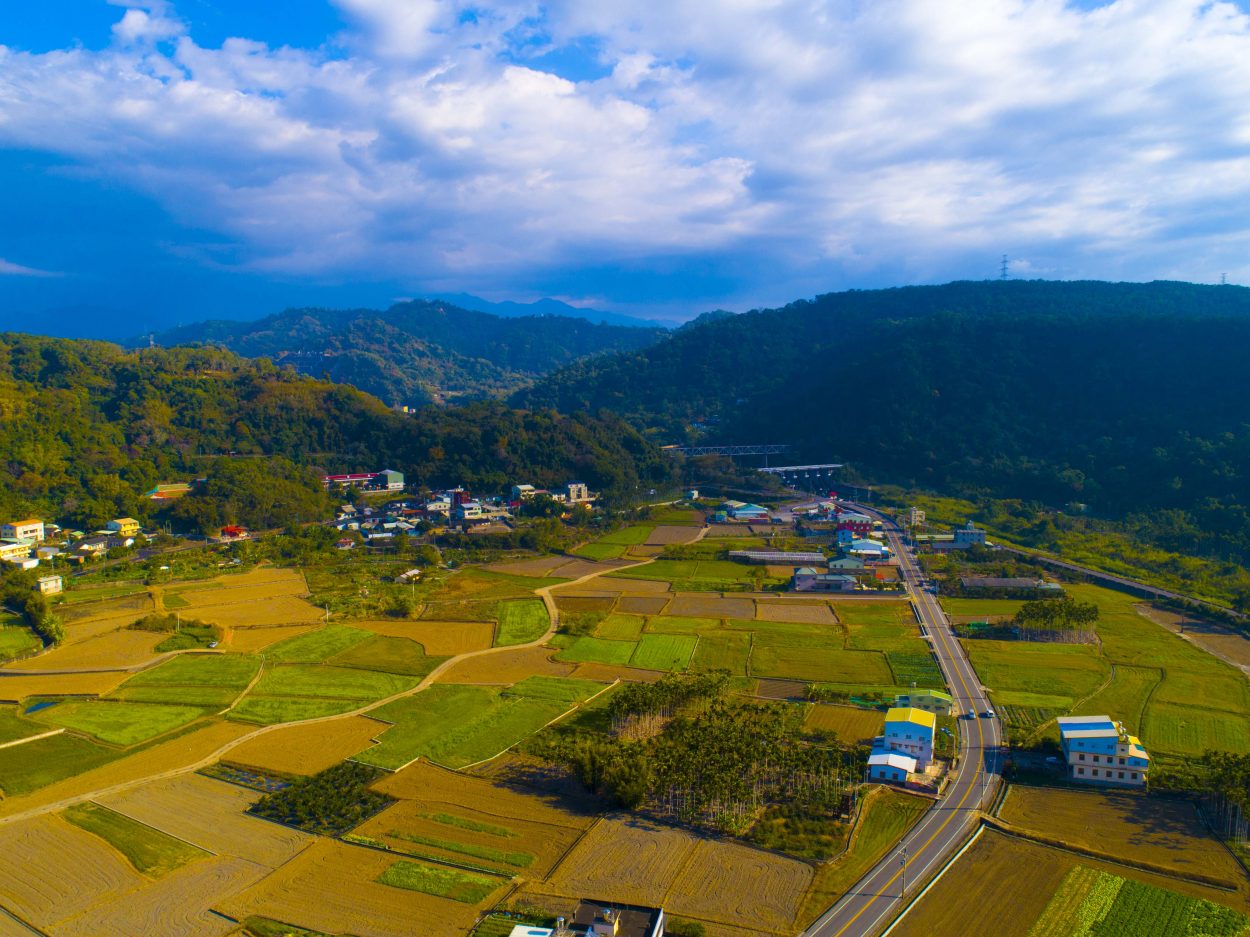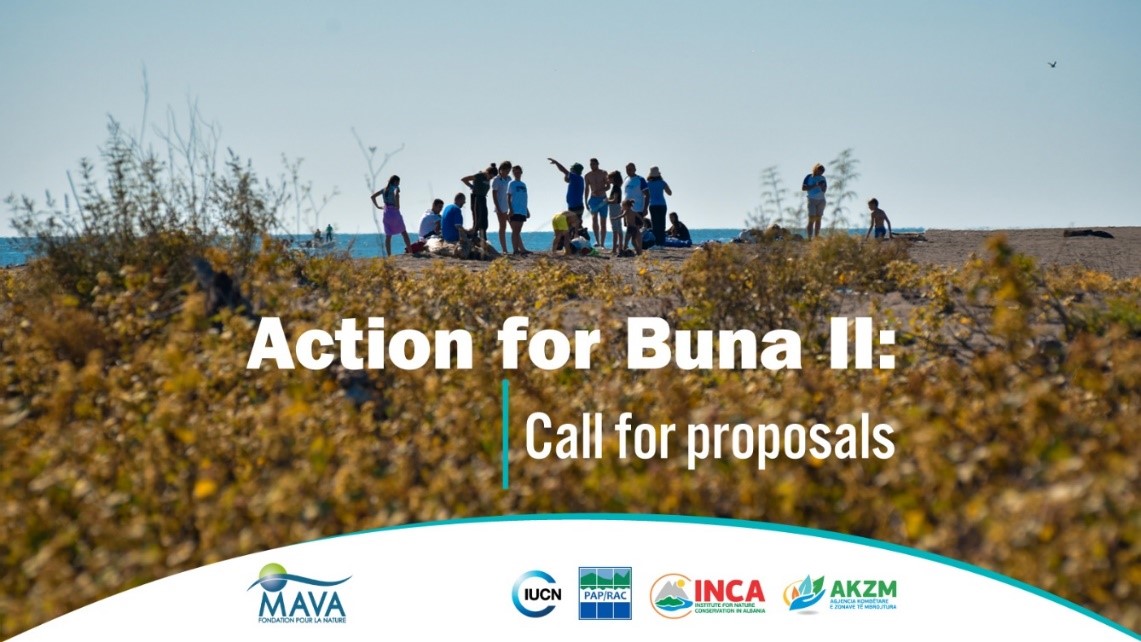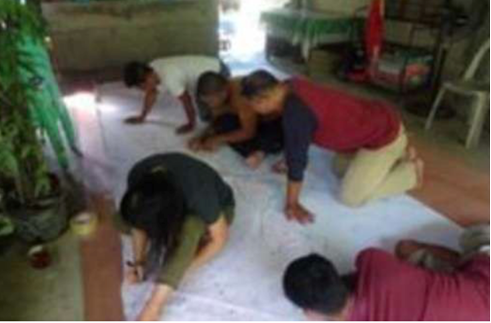IPSI Newsletter

TOPIPSI NewsletterIPSI Newsletter, August 2021
IPSI Newsletter, August 2021
2021.08.31
Dear IPSI members and friends,
Greetings from the IPSI Secretariat in Tokyo, Japan.
Virtual meetings of the Third Meeting of the Open-Ended Working Group on Global Biodiversity Framework under the Convention on Biological Diversity are taking place, starting on 23 August 2021. We wish for a successful virtual meeting and hope to collaborate with those participating, in promoting landscape approaches and a new framework towards realising societies in harmony with nature.
This month’s newsletter contains a webinar announcement from our IPSI members, a call for proposals on small grants for sustainable socio-economic development in Albania- Buna River Delta from IUCN Regional Office for Eastern Europe and Central Asia (IUCN ECARO), details of new publications and a case study from Daluhay in the Philippines.
As always, please feel free to contact us to submit any new case studies or other information about your activities, or if you have any questions or comments.
IPSI Secretariat

Upcoming Event: Webinar on Good Practices for SEPLS Management (7 September)
IPSI members the Soil and Water Conservation Bureau (SWCB) and Taiwan Landscape Environment Association (TLEA) will organise an online webinar jointly with National Chung Hsing University (NCHU) to share valuable experiences and insights on implementing the Satoyama Initiatives in Chinese Taipei. The webinar is slated to be held on 7 September 2021 at 10:00-11:30 am (JST; UTC+9). This webinar will share their experiences in forwarding “the Satoyama Initiative actions” through multi-sectoral collaboration and also in-depth insights into a case study of Liyu community in the central region of Chinese Taipei.
The webinar will be delivered via Google Meet and is open to the public. Please feel free to share the following link or QR code with your colleagues and all those interested in the topic of this webinar. *Please note that this event will be held in English only.
Google Meet Link: https://meet.google.com/rwc-xjsz-yjr
Google Meet Code: rwc-xjsz-yjr Or scan the QR code

For more information on the case study, please see the IPSI website here.

Small Grants for Sustainable Socio-economic Development in Albania – Buna River Delta
On 9 July 2021, an online side event of the United Nations 2021 High-level Political
Situated in the Adriatic coast, the Buna Delta is a RAMSAR site and a wetland of manifold importance for the local community and the biodiversity it safeguards. It shelters rare and endangered species, such as pygmy cormorant, Eurasian otter, golden jackal and sturgeon. Its healthy wetlands support crop and livestock production, fishing and tourism around the Buna River – a source of income for approximately 36,000 inhabitants.
The International Union for Conservation of Nature Regional Office for Eastern Europe and Central Asia (IUCN ECARO) and Living Buna partners are encouraging sustainable socio-economic development in Buna River Delta Protected Landscape, by focusing on ecosystem restoration, agriculture, tourism and fisheries management through community based actions. For this purpose, Living Buna partners have opened a call for interested parties to submit their ideas to receive funding for projects that would benefit socio-economic development and ecosystem restoration of the area. The aim of the Call is to contribute to the long-term conservation of species and habitats in the protected area, by supporting concrete on the ground action. The Action for Buna II: Call for proposals is open for NGOs, Civil Society Organizations and Universities based in Albania and local communities, residents of Rrethinat, Ana e Malit, Dajç, Velipojë, Bërdicë, Bushat, Balldren i Ri, and Shëngjin.
Proposals should address at least one of the following priority areas:
- Habitat restoration and application of Nature-based Solutions (potential activities could include restoration of degraded and fragmented riverine forest; restoration of sand dune areas or other habitats of biodiversity importance; or inventory of biodiversity-rich and vulnerable coastal areas/habitats);
- Agro-environmental and water-saving incentive schemes including improving the sustainability of irrigation systems (as an example these could focus on environmentally friendly storage containers for manure; improvement of irrigation systems; growing and sustainable harvesting of native medicinal plants; or improvement of water quality);
- Sustainable tourism development (projects could propose the development of thematic eco-friendly walking and cycling trails, promotion of most important habitats and species of the area, development of sustainable eco-tourism offers including accommodation, bed and breakfast, etc.); and
- Sustainable fisheries (potential activities could include the establishment of eco-friendly fish farms; support of sustainable fish breeding facilities or traditional and eco-friendly fishing activities).
If interested in applying for a grant, please visit the Living Buna website to find all of the necessary information and relevant documentation. The Action for Buna II Call for Proposals closes on 05 September 2021.
New Article: From Cultural Landscape to Aspiring Geopark: 15 Years of Community-Based Landscape Tourism in Fengnan Village, Hualien County, Taiwan (2006–2021)
This article was recently published in a special issue of Geosciences journal, written by Prof. Kuang-Chung Lee and Ms. Paulina G. Karimova of IPSI member National Dong Hwa University in Chinese Taipei. This article outlines the application of various landscape concepts including the socio-ecological production landscapes and seascapes (SEPLS) and the Satoyama Initiative to sustainable landscape management and community-based landscape tourism in Fengnan village in Chinese Taipei. The experience of SEPLS management in Fengnan was previously shared in a chapter of the Satoyama Initiative Thematic Review vol.2, based on the IPSI case study and the SDM Project, and this article provides a retrospective 15-year analysis linking their efforts to geo-conservation and geopark development.
More information can be found on the Geoscience website here.
The article is available at its DOI here.
New Article: Seizing the Landscape Opportunity to Catalyse Transformative Biodiversity Governance: A Contribution to the CBD Post-2020 Global Biodiversity Framework
This new policy brief highlights how landscape governance arrangements and initiatives can be leading pathways to better outcomes for people and nature. Jointly authored by PBL Netherlands Environmental Assessment Agency, Wageningen Centre for Development Innovation and UNU-IAS, the policy brief proposes that the key for unlocking transformative change to halt global biodiversity loss is provided by landscape approaches. It explains the rationale and need to embed a landscape perspective in the post-2020 GBF to trigger more landscape actions for creating co-benefits between SDGs, climate, restoration and biodiversity ambitions. One of these landscape initiatives include the Satoyama Initiative. It is co-authored by UNU-IAS researchers Evonne Yiu and Suneetha M. Subramanian.
The policy brief can be downloaded here.
New Article: MODIS NDVI Multi-Temporal Analysis Confirms Farmer Perceptions on Seasonality Variations Affecting Apple Orchards in Kinnaur, Himachal Pradesh
This article, published in Agriculture, is written by Dr. Himangana Gupta, JSPS Research Fellow at the IPSI Secretariat at UNU-IAS, and colleagues. It focuses on the socio-ecological production landscape of Kinnaur in the Northern Indian State of Himachal Pradesh which is facing climatic changes and landscape changes due to developmental activities. This study attempts to understand the impact of such changes on the most important crop of the region, apple. It analyses the seasonality variations during a 15-year period from 2004 to 2018 when maximum construction activities occurred in this region. The study uses geospatial and statistical techniques in addition to farmer perceptions obtained during a field visit in November 2019 for seven apple-growing locations in Kinnaur. The results show high seasonal variations and reduced snowfall at lower elevations, resulting in less chilling hours, which are necessary for the healthy growth of apples. Local farmers are unprepared for future seasonal disturbances, as they lack early warning systems, insurance for apple crops, and alternative livelihood options.
The article is available here with Open Access.

Recent Case Study: Daluhay, the Philippines
We are pleased to share a case study recently submitted by Daluhay, our IPSI member from the Philippines, titled “Egongot Tribal Development and an NGO as a Catalyst for Sustainability”.
This case study highlights how indigenous philosophy contributes to the global sustainability. It shows “the establishment of community-based capacity to move forward with their Indigenous and Community Conservation Area (ICCA) management plans. The communities were engaged in the entire planning process from situational analysis to the defining of vision, mission, goals and the formulation of a strategic plan. The project provided opportunity for Daluhay to facilitate and help define strategies, while the Egongot communities learned implementation strategies to meet local challenges, including finances; moving forward with community goals as tribal development”. The case features how Daluhay, as an NGO, played a catalyst role in helping the Dipaculao Egongot community institutionalise 41,480 hectares of Egongot Ancestral Domain as their ICCA. The ICCA management zones include sacred grounds, marine sanctuaries, traditional hunting areas, as well as tourism and production areas. “The project’s success directly contributed to the implementation of the “Philippine United Nations Declaration on the Rights of Indigenous Peoples (UNDRIP)”, while connecting participants to an ICCA network and gathering support for future project funding”. “The project provided a progression in local ownership and valuation of their cultural heritage through a two-way learning process with Daluhay. Further, the ICCA highlighted the knowledge systems and practices of the Egongot and provided a template for how youth can also embrace their previously eroding culture.
Serving as a model for Daluhay’s work with other Indigenous communities through the development of sector-specific relationships within communities, the approach used in this case is implemented in other ancestral lands in the province of the Aurora Philippines to establish more ICCAs.
For details of the Case Study by Daluhay, please see here on the IPSI website.
SDM 2021: Applications Closed
The applications are now closed for the Satoyama Development Mechanism (SDM) 2021. Thank you to all the IPSI members who have applied. SDM is an IPSI collaborative activity being jointly implemented by the Institute for Global Environmental Strategies (IGES), UNU-IAS, host of the IPSI Secretariat, and the Ministry of the Environment of Japan since 2013. It serves as a financing mechanism to facilitate the implementation of activities under IPSI. It provides grants of up to USD $10,000 to selected IPSI members each year for the implementation of on-the-ground projects, meetings and workshops, research activities, and others. The SDM Secretariat will announce the recipients once the selection process is completed. Information on the SDM is available here. If you have any questions regarding the SDM, please contact the SDM Secretariat directly at sdm@iges.or.jp.
Contact
Please be sure to let the Secretariat know if there are any changes in your e-mail address or contact information.
Secretariat of the International Partnership for the Satoyama Initiative
United Nations University Institute for the Advanced Study of Sustainability (UNU-IAS)
5–53–70 Jingumae
Shibuya-ku, Tokyo 150-8925
Japan
Tel: +81 3-5467-1212
Fax: +81 3-3499-2828
Email: isi@unu.edu
If you have been forwarded this newsletter and would like to SUBSCRIBE, you can do so on the IPSI website here.


